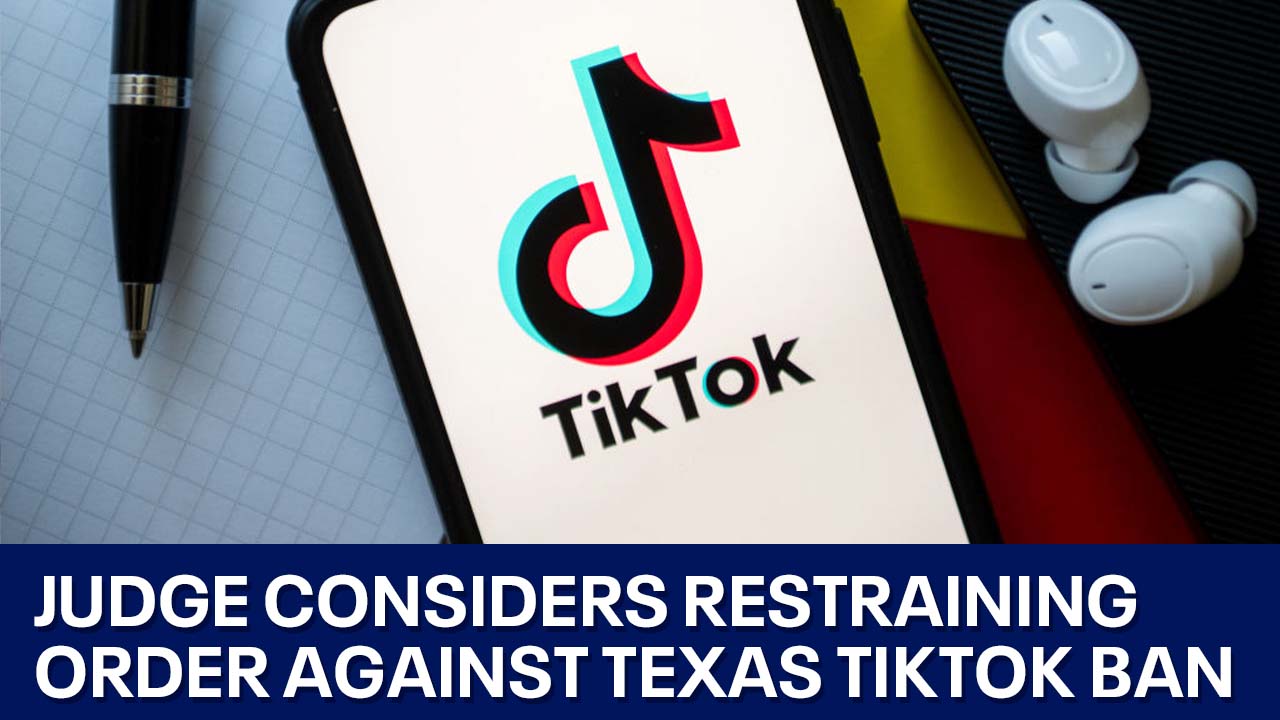Judge considers restraining order against Texas law banning TikTok on state-owned devices

Possible order against Texas TikTok ban
A Texas judge is considering a restraining order against the new law that bans TikTok from state-owned devices.
AUSTIN, Texas - A judge is considering a restraining order against the new Texas law that bans TikTok from state computers and electronic devices.
Judge Robert Pitman said the social media platform is an important research tool for university professors.
"What kind of restriction is this? What label do you apply," said constitutional law expert David Coale.
Judge Pitman, according to Coale, first has to define the type of case before him. Is it about free speech or cybersecurity?
"We treat them differently. So, you have to figure out what test applies and what body of precedent applies once you do that. And the answer kind of writes itself," said Coale.

Texas TikTok ban remains limited to government-issued devices
Gov. Greg Abbott signed an executive order earlier this year prohibiting the app from being downloaded onto any state computer or smartphone. This week, Montana was the first state to ban TikTok entirely.
TikTok is owned by a company allegedly with ties to the Chinese Communist Party. The Texas TikTok law took effect in June. Although in January, universities had already started blocking the app following an executive order by Governor Abbott.
FOX 7 Austin was on the campus of UT Austin as students tried to log on to the university's Wi-Fi. Computer screens froze up and would not load up.
READ MORE
- Texas TikTok ban remains limited to government-issued devices
- TikTok banned on all Canadian government phones
- Gov. Abbott orders TikTok ban for all Texas state agencies
The federal lawsuit, filed in July, was made by an advocacy group for university professors called the Coalition for Independent Technology Research. It’s argued the state ban infringes on academic freedoms and constitutional rights.
"This reminds me a little bit of the drag show litigation that we had some flirtation with a law about this in Texas. A couple of more extreme versions have gone into litigation in other states where the drag show people said this is a restriction on speech. We can't present ourselves. We can't dance the way we want to. The enacting people said, 'no, it's time, place and manner.' We're all about safety and public morals and that can go very well. The judges generally saw those as restrictions on speech," said Coale.

TikTok blocked on University of Texas Wi-Fi and wired devices
UT-Austin students will no longer be able to access the popular social media app through the university's Wi-Fi or wired devices because of a state directive citing cybersecurity concerns with the Chinese company. FOX 7 Austin's Shannon Ryan has details.
The lawsuit may also hinge on another key point. The law doesn't say you can't study or use TikTok, you just can't use it on a government device.
"Their argument for academic freedom is undermined by that, because they just have to figure out some ways to use different resources. That's going to be how that question of what the policy requires gets worked out is going to be pretty important in figuring out who's really hurt and helped by this law," said Coale.
As part of the motion, a partial compromise was offered. It includes making university professors exempt from the law, and providing researchers with alternative equipment that is not directly linked to state-owned computers.
It’s unclear when Judge Pitman will make a ruling on the motion. If he blocks enforcement, allowing TikTok back on state devices, an appeal to the 5th Circuit by the state would be expected.

